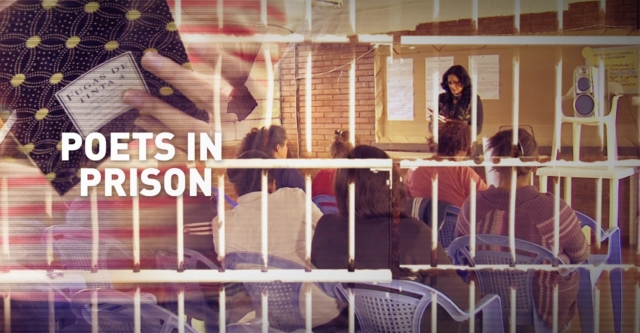Prisons are places of punishment designed to detain those who have shown the worst of human behavior. But offenders of society are held in this facility with the hope they can be rehabilitated and possibly released. Our correspondent Michelle Begue found a prison in Colombia where being confined to a cellblock is actually bringing out the best in human behavior. Being “locked-up” has helped some inmates “un-lock” their creativity and made them poets behind prison walls.

Poets in Prison
Prisons are places of punishment designed to detain those who have shown the worst of human behaviour. But offenders of society are held in this facility with the hope they can be rehabilitated and possibly released. Our correspondent Michelle Begue found a prison in Colombia where being confined to a cellblock is actually bringing out the best in human behavior. Being “locked-up” has helped some inmates “un-lock” their creativity and made them poets behind prison walls.When Karina was 12 years old, she left her family and home to join the leftist rebel group Revolutionary Armed forces of Colombia. 10 years later, she was captured by the Colombian Military during a FARC base camp raid. In addition to losing her arm in the attack she was taken to serve time in a Colombian prison where her mental health slowly started to decline. She felt guilt for surviving the attack, and attempted to take her own life while incarcerated.
It was writing about her experiences that saved her. Through a seminar at the prison called Libertad Bajo Palabra—which translates to freedom through words—she learned to release the pain through prose, and to relate to her fellow inmates. The program that changed her life began in 2005 under the eye of Jose Zuleta Ortiz, a writer who witnessed the changes writing can inspire in inmates during his time volunteering at a prison in Cali. Since then, the program has grown in popularity and effectiveness; it is now implemented in 17 prisons throughout Colombia, and Ortiz has published several collections works by prisoners.
Karina’s story, titled Awakening, was selected by Ortiz to be published in the next collection, Fugas de Tinta; articles, stories, and accounts written from prison. Her life, as well as the lives of her fellow female inmates that participate in the program, has changed thanks to the power of expression through writing. These women are no longer former robbers, rebels, or thieves; they are now poets.
 CGTN America
CGTN America

